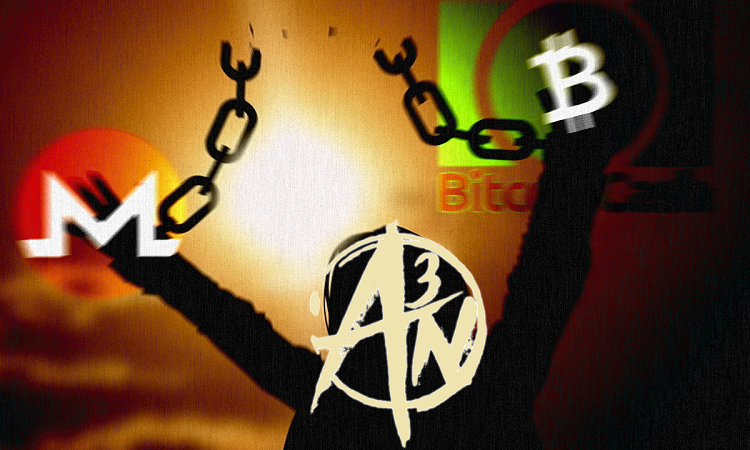
The 3 Best Cryptos for Helping the Poor
Right now, the legacy financial paradigm isn’t helping many people get out of debt, establish economic independence, or break free from self-perpetuating, vicious cycles of poverty. This is because the state is legacy finance, and the whole idea is to keep people living hand-to-mouth, paycheck-to-paycheck, dependent on government for everything. Crypto, on the other hand, can still help some to escape this self-perpetuating cycle and begin to establish themselves on more solid ground. What follows is my own extremely biased and limited opinion (not financial advice) on three of the most promising cryptos for this job.
It Sucks Being Poor
Of course, ‘poor’ is a relative term. When people in first world countries lament being broke or poor, they are usually rich compared to the rest of the world, statistically speaking. That’s not to say they’re not struggling. Not at all. The debt/credit inflationary circus of modern developed societies puts immense pressure on people to consume, consume, consume at all costs, then once the credit’s run dry, the crackdown comes. The phone is ringing off the hook with calls from bill collectors, the indebted feels a weight like no other as they’re hunted down by state agencies, corporations, banks, and debt collection services, and life becomes one never-ending cycle of stress after unmanageable stress.
Even if one has paid off their debts, endless taxation does its part; to be sure, the average, hardworking person cannot get too firm a footing, before being knocked back down into this confusing mire of debt. Those who stay out of credit card debt, pay all their taxes, and jump through all the other increasingly tiresome hoops, still are guaranteed nothing and usually must struggle working long hours at low-paying jobs just to break even. Even those with high-paying jobs are subject to one of the most insidious ‘taxes’ that is guaranteed never to go away in statist money – that parasitic function called inflation.
For those in less developed regions, the situation is even more dire, to the point of being life-threateningly unsafe, undersupplied, and economically restrictive on a day-to-day basis.
How Crypto Can Help
With the advent of bitcoin in 2009, a new hope hovered on the horizon for the average working stiff. A money that was non-inflationary, not controlled by governments or banks, and which could be saved privately and securely for one’s own deployment and disposal, at any time.
In other words, a money that was economically sound.
Talk of a bitcoin ‘revolution’ began to spread. The state would no longer have a vice grip hold on the wallets of the people, and the out-of-control, abusive taxation paying for evil wars and fat cat politicians bailing out banks would be reeled in. Soon, the whole world would look like a scene from The Sound of Music, with Julie Andrews singing Satoshi’s praises in the Swiss Alps, as kindhearted bitcoiners danced in circles, holding hands, taking over the world for good.
That didn’t really happen. A little. But not really. The freedom crypto affords is definitely under threat. People with no money simply cannot afford to pay the exorbitant transaction fees ($50 at time of writing) now required on the bitcoin BTC network, or wait hours for transactions to confirm. Some coins are currently much better served than others to help struggling individuals leverage the decentralized power of financial autonomy. Some trading platforms as well. What follows is a look at a few of these options.
BCH – The bitcoin cash community is well-known for the voluntaryist streak it has running directly down its center. Platforms like local.bitcoin.com, which provide a non-custodial escrow service allowing users to easily and securely meet face-to-face to trade, exchange crypto online for multiple payment methods, or list items on an open marketplace, allow those in oppressed countries with stifling regulations to still use their crypto and get some cash, regardless of what a government says. When localbitcoins.com began buckling under statist regulations in recent years, local.bitcoin.com emerged.
The bitcoin cash community is also about outreach, charity, and onboarding. EatBCH and Bitcoin Cash House are both examples of this. EatBCH is a decentralized charity initiative that provides food to those in need in Venezuela and South Sudan, by leveraging the convenience and extremely low transaction fees of bitcoin cash.
Bitcoin Cash House is another initiative launched in Venezuela two years ago, which seeks to connect, educate, and empower individuals to find opportunities to earn, use, spend, and save BCH to improve their life situation. To see some specific examples of how BCH is ‘boots on the ground, let’s-actually-do-shit’ crypto, check out this in-depth exploration of the humanitarian side of the community. Further, BCH is accepted at many brick and mortar payment points around the world, making turning the money into actual supplies and food for living much easier. Privacy is also made possible by protocols designed to confound chain analysis like Cash Shuffle and Cash Fusion.
XMR – Ah, monero. That beacon of crypto privacy. I’m not sure what else to say except that XMR is one well-loved coin worldwide that remains a privacy-baked-into-code middle finger to the so-called powers that be. While arguably not perfect, it still beats openly parading one’s assets about. As noted on the monero.how website, “When you send funds to someone’s public address, what happens is that you actually send the funds to a randomly created brand new one-time destination address. This means that the public record does not contain any mention that funds were received to the recipient’s public address.”
This notwithstanding, it is important to remember OPSEC always matters. Talking big about crypto allowing folks to escape the oppressive forces of government regulations is well and good, but living under said oppression day in and day out is often a different story. Take a look at Reddit post from a fellow in India who points out that even with bitcoin and taking careful steps, things aren’t easy:
“Of course, you can never ban Bitcoin due to its decentralized nature and you might be thinking why I am selling my crypto when I could just as easily use a VPN. Well, the answer is that you don’t live under this government. In 2019, the country was undergoing civil unrest with riots in the capital in the CAA protest against a bill that discriminated based on religion. They silence journalists, kill protestors, and control not only just the media but also the judiciary. It’s. fucked. up.”
One commenter makes a snarky remark about the superiority of XMR, to which another replies:
“Which is only safe because you mined the monero yourself, or bought them with cash from a seller who doesn’t track your identity. Anyone buying off centralized exchanges would still be at risk.”
This disclaimer in view, XMR is still a solid choice for dealing privately as long as it is acquired via trusted, agoristic trade and not centralized, state-affiliated exchanges.
ADA – BCH has ultra-low transaction fees and a baller community. XMR has state-of-the-art privacy. ADA (and other such as-of-yet ‘cheap’ coins) has arguably remarkable growth potential. For those struggling with a lack of means and funds, the crypto market is one final refuge where a kind of ‘Hail Mary’ escape might be plotted. Broke people can’t do shit as far as getting plugged into most of the mainstream financial world. When you’re worried about your car’s blown up engine, the bill collectors chasing you down, and state agents harassing and threatening you for extortion payments while you try to feed yourself and your family, ‘going to see my broker’ is the last shit on your mind. You do not have a broker. You could not be broker.
Repeating that none of this is financial advice, and remembering that in gambling the house eventually always wins, there are some calculated risks that could play out well for those that play smart. Cheap cryptos with solid development, big market cap, meeting roadmap milestones, and keeping their communities updated are part of this.
Cited as “one of the most actively-developed projects in the blockchain space today” ethereum co-founder Charles Hoskinson’s little project cardano (ADA) has surpassed many optimistic price predictions from a year ago, when it was valued at just three cents, USD. At time of writing ADA sits at a buck-seventeen.
The basic idea put forth by Input Output Hong Kong’s (IOHK) championed project is that blockchains, cryptos, and financial institutions should be much more interoperable and interconnected. Extreme optimists see cardano as the ‘ethereum killer,’ with its Proof of Stake, multi-layer smart contract capabilities promising to balance privacy concerns with appeasing legacy financial institutions. Pessimists see it as some bullshit project that will just usher in more globalist financial surveillance. Of course, the latter is most likely true. But for now, if someone has a little bit to invest – even just 10 dollars – the gains seen on such coins could be much more dynamic than those on something like BTC, which is already soaring in the sky. And if ADA does succeed in providing greater access to crypto and easier on/off ramps as it purports to be aiming for, it could be a tool for those in dire straits to leverage and access funds, at least temporarily.
Satoshi for Your Thoughts
Well, there you have it. Three coins that look useful for three different, basic reasons: usability, privacy, and upside potential. Which coins do you think are the best cryptos for helping those in want? Let us know your thoughts in the comments.







